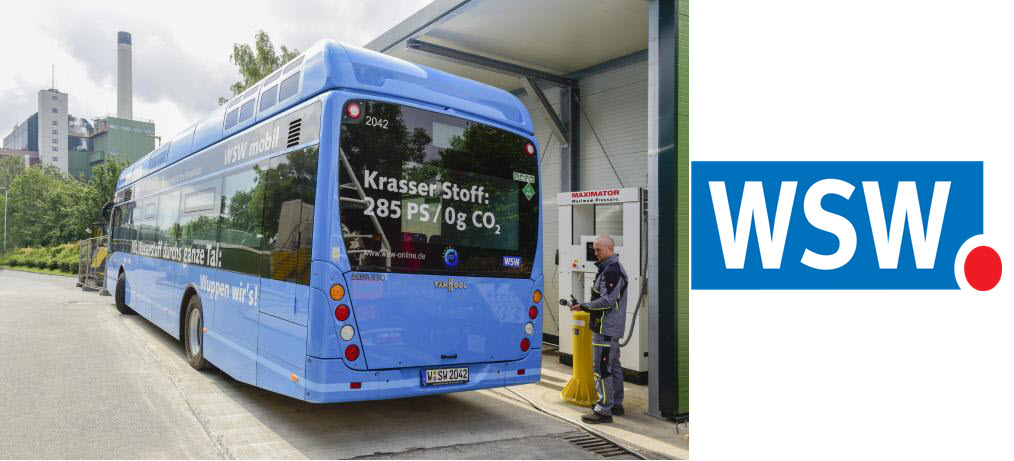
This past Saturday, ten hydrogen-powered buses went into operation in Wuppertal.
For NRW Transport Minister Hendrik Wüst, the Wuppertal model is more than just a local solution. Wüst rates the project from WSW and AWG as an innovation, “the circular economy is new and thinking ahead.” Wüst: “In 120 after the Schwebebahn was put into operation, Wuppertal once again launched a European-level traffic innovation.”
In the buses, the hydrogen is converted into electricity by a fuel cell. The vehicles emit pure water vapor as exhaust gas. The electric motor brings a whopping 285 hp onto the road, the Wuppertaler Stadtwerke reported. The buses also have no engine noise.
The hydrogen is produced in Wuppertal itself using the electricity that is generated during waste incineration. The Wuppertal model is an innovation, “the circular economy is new and thinking ahead,” said Wüst.
The European Union, the federal government, the state of North Rhine-Westphalia and the Rhine-Ruhr transport association have supported the project with a total of 6.5 million euros. The total cost is 12 million euros. The hydrogen bus fleet will be doubled to 20 vehicles next year.

Betriebshof Varresbeck Wasserstoffbus Bus KOM Neu Technik Umwelt
The buses of the Belgian manufacturer Van Hool offer space for 75 passengers. A bus costs around 650,000 euros, almost three times as much as a conventional diesel bus. Hydrogen is to become a key technology for the energy transition in North Rhine-Westphalia in the transport sector. According to a study for the NRW Ministry of Energy, low greenhouse gas hydrogen – which can be used for steel production, for example – has the potential for up to 130,000 new jobs in NRW.
Hydrogen filling stations have so far been a rarity in North Rhine-Westphalia. So far there are only 19 of them. This year, three more hydrogen filling stations are to be added, and additional plants are planned for 2021 and 2022. At the end of last year, there were 3880 public charging points for electric cars in North Rhine-Westphalia.
Household and commercial waste will power the WSW Wuppertaler Stadtwerke hydrogen bus fleet.
In the Wuppertal waste-to-energy plant of the waste management company AWG, green electricity is generated from the biogenic share of the waste. This in turn is used to produce hydrogen in an electrolyzer, which is used to fuel the new WSW hydrogen buses on site. Compared to purely battery-electric buses, the hydrogen buses have a significantly longer range of around 300 kilometers. WSW Energie & Wasser AG is responsible for optimizing the energy industry. For example, hydrogen is primarily produced when there is a lot of wind and solar power in the grid.
Read the most up to date Fuel Cell and Hydrogen Industry news at FuelCellsWorks




